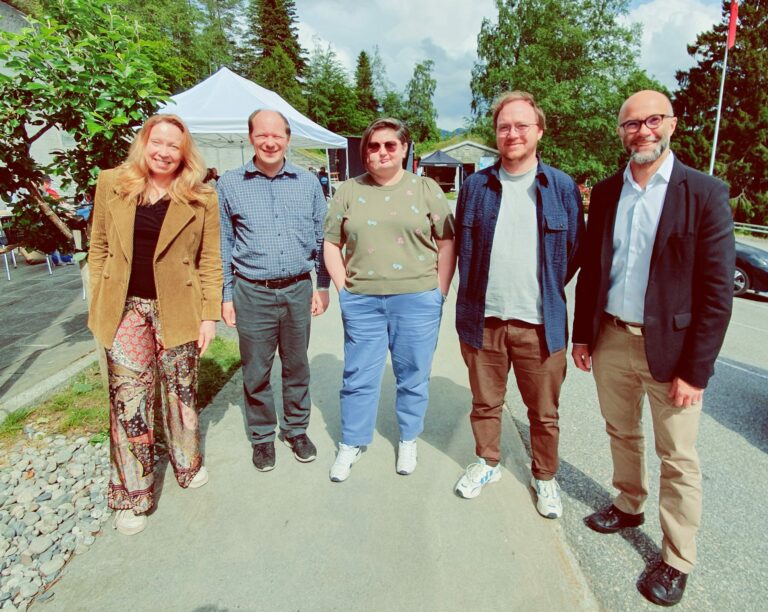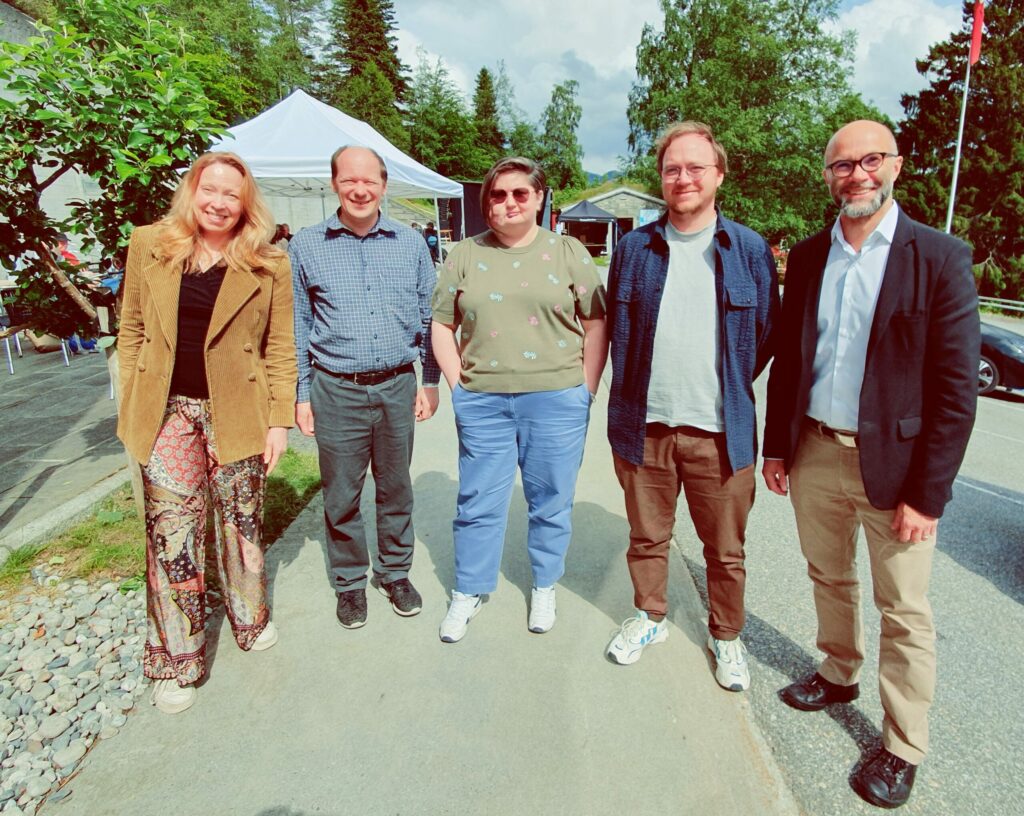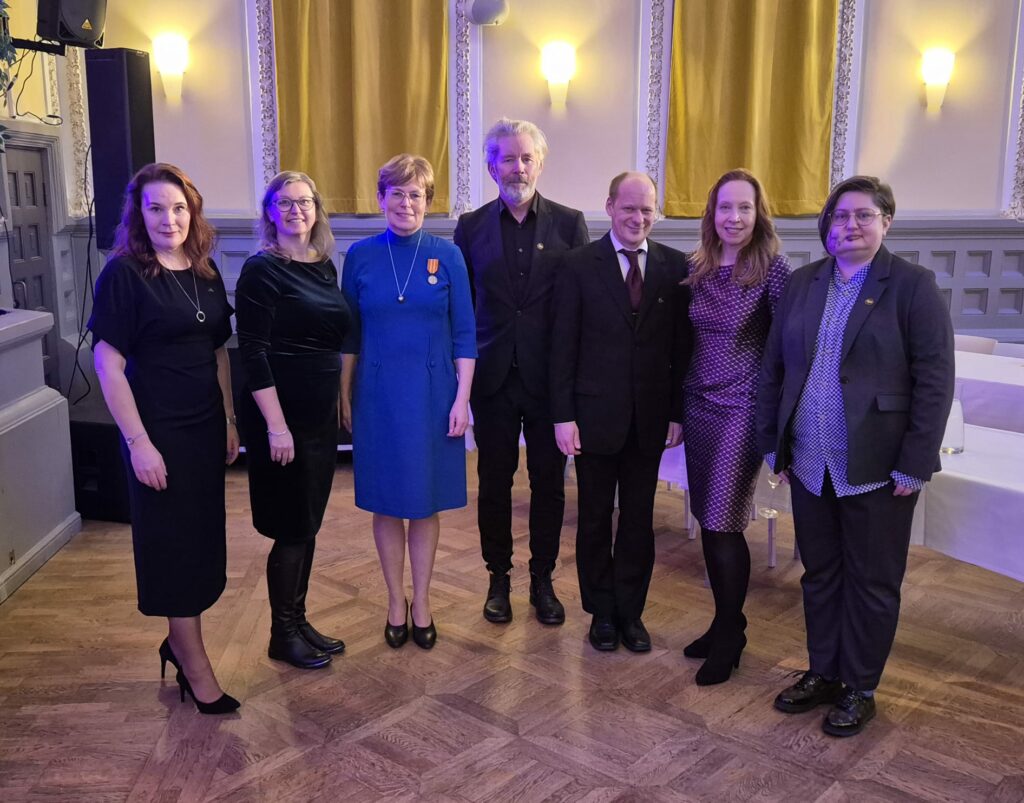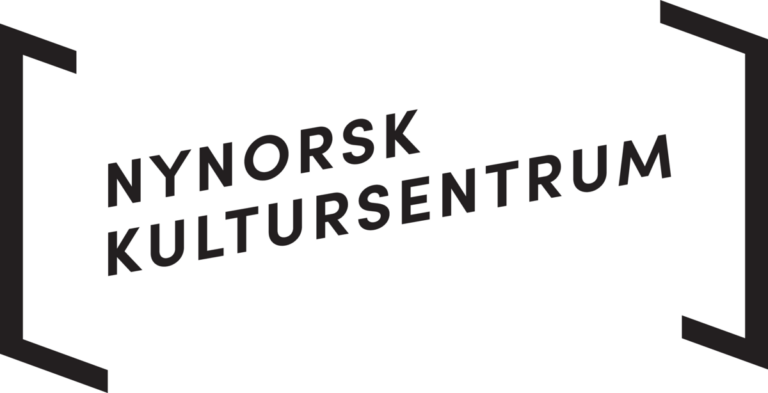Cooperation and experience exchange within organising language festivals

Languages are an essential part of its cultural heritage and the Nordic-Baltic area is rich in linguistic diversity. Thus, language festivals can serve as platforms for such activities. Organising such events requires collaboration among various partners including cultural organisations and museums, and it can be recognized as a way for community cohesion, providing opportunities for individuals to explore new languages, gain cultural insights, and engage in cross-cultural dialogue.
Cooperation and experience exchange among organisations are essential for ensuring the success and sustainability of such events as it allows for the sharing of expertise, thereby enhancing the quality and impact of language festivals, enabling the organisers to learn from each other’s successes and challenges and identify best practices, and new approaches to festival programming and management. By fostering experience sharing, this project seeks to build a supportive network of language festival organisers in the Nordic-Baltic region, strengthen the capacity of participating organisations, and enhance the effectiveness of language festivals.
With the aim to cooperate with international partners within the field of organising language related festivals, the idea for the project Cooperation and experience exchange within organising language festivals arose. The Language Museum Association is interested in establishing the tradition of organising a language festival in Latvia, that is why the two partner organisations, one from Norway and other from Finland, have been chosen to strengthen already existing cooperation and to establish a new cooperation for broadening not only the experience of the Language Museum Association, but also creating new Nordic cooperation for the more experienced partners, Norwegian Museum of Written Culture (Nynorsk kultursentrum) and The Swedish Assembly of Finland (Folktinget). Both organisations work with lesser-used languages and organise cultural events, among them festivals (Dei nynorske festspela and Svenska veckan).
As both Nordic partner organisations have long experience in organisation of language related festivals, they can help the Language Museum Association with sharing experience and knowledge on the organisation of such an event. Moreover, they will have the possibility to gain experience from each other. That is why it is considered to organise three experience exchange trips and online meetings to discuss and analyse new experiences within the project. Where it is suitable, the visiting partners also could contribute with lectures or other content on the festival they are visiting.
Overall objectives:
- Fostering collaboration and networking among organisations involved in the organisation of language festivals to build relationships, partnerships, and support
- Facilitate the exchange of knowledge, skills, and best practices among language festival organisers to enhance their collective expertise
- Improve the quality and diversity of language festivals by incorporating innovative programming ideas, engaging activities, and cultural showcases
- Strengthen the capacity of participating organisations to plan, manage, and evaluate language festivals effectively
- Celebrate linguistic diversity and promote language learning by showcasing different languages and cultures at language festivals
Planned results:
- Creation of a collaborative network of language festival organisers in the Nordic-Baltic region leading to joint initiatives, coordinated efforts in organising language festivals and other initiatives in the future
- Exchange of expertise, best practices, and innovative ideas among language festival organisers, resulting in improved event planning, management, and programming
- Improvement in the quality of language festivals, including better organisation, positive participant experiences, and greater engagement
- Promotion of cross-cultural understanding, intercultural dialogue, and appreciation for linguistic diversity through the platform of language festivals
Organizations
Language Museum Association is an NGO established in 2020 to promote language as a means for positive change in society and to establish a museum of languages. Association is one of the two legal entities under the brand House of Languages, which is a cultural centre for languages and language learning in Riga. For now, there is a mini exhibition about languages displayed at the premises in Avotu iela 33 in Riga, and events connected to languages are organized there. House of Languages also has a unique linguistic library, which is freely accessible to the public.
Norwegian Museum of Written Culture (Nynorsk kultursentrum) was established in 1993 to promote the Nynorsk language and written culture and is a private non-profit institution financed by the Norwegian Ministry of Culture, three regions, four municipalities and several private sponsors. They have museums in three locations, including the Ivar Aasen-tunet dating back to 1898. They organize events, among them a festival connected to Nynorsk and activities for children and youth.
The Swedish Assembly of Finland (Folktinget) participates actively in the law-drafting process and constantly issues statements to governmental and municipal institutions on issues and reform plans concerning the Swedish-speaking population. The task of Folktinget is to safeguard the Swedish language and the interests of the Swedish-speaking population in Finland. They organise The Swedish Week in Finland which is the largest cultural event in Swedish and is always celebrated in conjunction with Swedish Day on 6 November. The Folktinget also offers digitally produced programmes. The material is ideal for use in teaching Swedish in Finnish schools.
Funding:
EUR 11 500,00
Implementation period:
Project news





